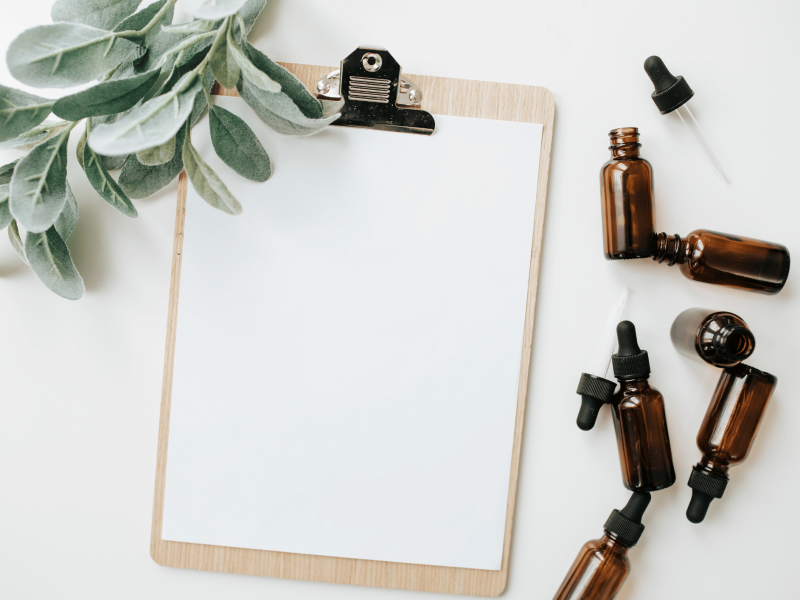Essential oils are powerful plant extracts that offer a wide range of therapeutic benefits. However, due to their high potency, they must be used with caution to avoid adverse reactions. Below are detailed safety guidelines and warnings to help ensure you enjoy the benefits of essential oils safely.
Always Dilute Essential Oils
Why it’s important? Essential oils are highly concentrated and applying them undiluted can lead to skin irritation, allergic reactions, or even chemical burns. Most essential oils should always be diluted before topical application.
How to dilute:
Carrier oils (like jojoba, sweet almond, avocado, or coconut oil) are ideal for diluting essential oils. Carrier oils help distribute essential oils evenly across the skin and reduce the risk of irritation.
The general rule for dilution is:
For adults: 2-3 drops of essential oil per teaspoon of carrier oil (about 1-2% dilution).
For sensitive skin or children over 2 years old: 1 drop of essential oil per teaspoon of carrier oil (about 0.5% dilution).
Pro Tip: For a stronger effect, you can increase the number of essential oil drops, but always be cautious. It’s safer to start with a lower concentration and test your skin’s reaction.
Patch Test
Why it’s important: Even with dilution, certain individuals may experience sensitivities or allergic reactions to essential oils. A patch test ensures that you can use the oil safely without causing irritation.
How to perform a patch test:
Dilute the essential oil (1-2 drops in a teaspoon of carrier oil).
Apply a small amount to an inconspicuous area, such as the inside of your elbow or wrist.
Wait 24 hours to see if any irritation or allergic reaction occurs. If redness, itching, or swelling develops, wash off immediately and do not use that oil.
Avoid Sensitive Areas
Why it’s important: Essential oils are potent, and some can cause severe irritation or burns if applied to sensitive areas of the body.
Areas to avoid:
Eyes and mucous membranes: Essential oils can cause stinging, burning, or discomfort if they come in contact with the eyes, mouth, or genitals. Always avoid applying oils directly near the eyes.
Broken or irritated skin: Avoid using essential oils on damaged skin, as it could cause further irritation or sensitivity.
What to do if irritation occurs?
If an essential oil gets in your eyes, flush with a carrier oil (not water, as oils and water don’t mix) and seek medical attention if needed.
If irritation occurs on the skin, dilute the area with a generous amount of carrier oil and gently massage. If discomfort persists, seek medical advice.
Essential Oils Are Not to Be Ingested
Why it’s important? Essential oils are not safe for ingestion. While they are natural, they are highly concentrated, and ingesting even small amounts can cause serious health risks. Some oils can be toxic, and ingestion can lead to nausea, vomiting, burns in the mouth and throat, or even organ damage.
Toxicity: Many essential oils, such as eucalyptus, rosemary, and wintergreen, contain compounds that are toxic when ingested, especially in larger quantities.
Digestive issues: Ingesting essential oils can cause stomach irritation, nausea, and vomiting. The potent compounds can irritate the digestive tract, leading to discomfort.
Even food-grade oils can pose risks: While some essential oils labeled as “food grade” are used in culinary applications, they must be taken under professional supervision and in extremely small amounts. For the vast majority of essential oils, ingestion is dangerous.
Recommendation: Never ingest essential oils!
Caution During Pregnancy and for Children
Why it’s important? Pregnant women and young children are particularly sensitive to essential oils. Some oils may cause unwanted side effects, including skin irritation, hormonal changes, or even contractions in pregnant women. Additionally, children’s smaller bodies may be more sensitive to the potency of essential oils.
Essential oils to avoid during pregnancy:
Essential oils safe for pregnancy and children (under proper dilution):
Lavender: Known for its calming effects and generally safe during pregnancy when diluted.
Frankincense: A gentle oil that supports relaxation.
Chamomile: Safe and soothing, particularly for children.
For children:
Avoid using essential oils on infants and young children under the age of 2 unless specifically directed by a healthcare provider.
Even for older children, oils like peppermint, eucalyptus, or clove should be avoided due to their potency and risk of respiratory issues.
Proper Storage Of Essential Oils
Why it’s important? Essential oils are sensitive to light, heat, and air, all of which can degrade the quality of the oil over time. Proper storage helps preserve their potency and extends their shelf life.
How to store essential oils:
Keep essential oils in dark, glass bottles to protect them from UV light.
Store in a cool, dry place away from direct sunlight and heat.
Seal bottles tightly to avoid oxidation.
Tip: Citrus oils such as lemon and orange tend to have a shorter shelf life due to their high acidity and should be used within 6 months of opening.
Caution with Pets
Why it’s important? Certain essential oils are toxic to pets, especially cats and dogs. Pets have a heightened sensitivity to essential oils due to differences in their liver metabolism.
Oils to avoid around pets
Tea tree oil: Highly toxic to cats and dogs, even in small amounts.
Eucalyptus oil: Known to cause respiratory issues in animals.
Citrus oils: Can cause digestive problems or skin irritation.
Safe use with pets:
Diffuse essential oils in a well-ventilated area where your pets can leave the room if they feel uncomfortable.
Do not apply essential oils directly to pets, and avoid using oils near their bedding or food areas.
Use Essential Oils in Moderation
Why it’s important: Less is often more with essential oils. Overuse or prolonged exposure can lead to skin sensitization or other adverse effects.
Guidelines For Essential Oils and Uses
Aromatherapy: Diffuse oils for about 30-60 minutes at a time. Use no more than 3-4 drops of essential oil in a diffuser.
Topical use: Apply oils in small amounts, and do not overdo it. Always adhere to recommended dilution ratios.
Tip: It’s better to use oils in short bursts rather than prolonged exposure. This helps avoid becoming desensitized to the effects of the oil.
Essential oils are powerful tools for enhancing well-being, but they must be used with respect and care. By following these guidelines, you can maximize the benefits of essential oils while minimizing the risk of adverse reactions.
Always remember to:
- Dilute essential oils before applying to skin.
- Avoid direct ingestion and contact with sensitive areas.
- Perform a patch test to ensure skin safety.
- Store oils properly to preserve their quality.
At Holistic Emporium, we offer a wide selection of high-quality essential oils that can enhance your daily life, from promoting relaxation to supporting skin health. Always ensure you are using them safely, and consult a professional if you have any concerns or questions about your usage.


